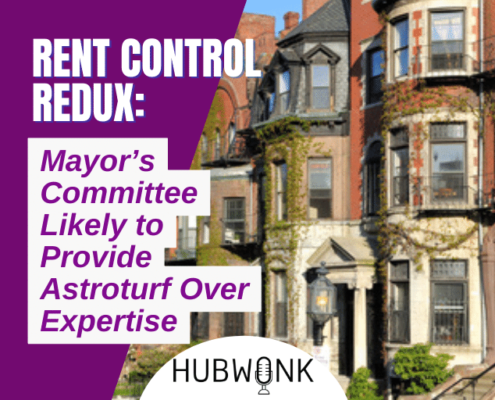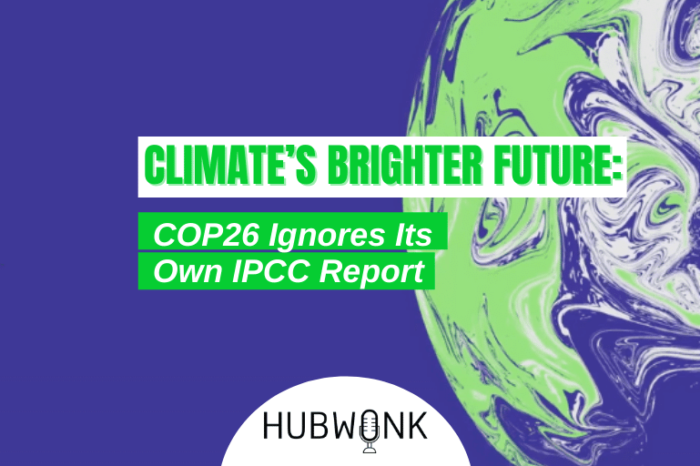Climate’s Brighter Future: COP26 Ignores Its Own IPCC Report
/in Featured, Podcast Hubwonk /by Editorial StaffThis week on Hubwonk, host Joe Selvaggi talks to Prof. Roger Pielke, Jr., Professor of Climate Science at the University of Colorado, about the widening gap between the catastrophic predictions proffered at the COP26 Climate Change Conference in Glasgow, Scotland, and the less dire observations contained in the UN’s own recent IPCC report.
Guest:
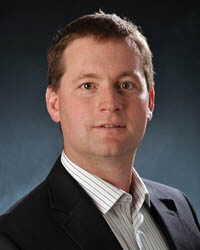
Roger Pielke with the University of Colorado at Boulder. (Photo by Casey A. Cass/University of Colorado)
Roger A. Pielke Jr. is a political scientist and professor. He served in the Environmental Studies Program and was a Fellow of the Cooperative Institute for Research in Environmental Sciences (CIRES) where he served as director of the Center for Science and Technology Policy Research at the University of Colorado Boulder from 2001 to 2007. Pielke was a visiting scholar at Oxford University’s Saïd Business School in the 2007–2008 academic year. Prof. Pielke earned a B.A. in mathematics (1990), an M.A. in public policy (1992), and a Ph.D. in political science, all from the University of Colorado Boulder. Prior to his positions at CU-Boulder, from 1993 to 2001 he was a staff scientist in the Environmental and Societal Impacts Group of the National Center for Atmospheric Research. From 2002 to 2004 Pielke was director of graduate studies for the CU-Boulder Graduate Program in Environmental Studies. Pielke serves on numerous editorial boards and advisory committees, retains many professional affiliations, and sat on the board of directors of WeatherData, Inc. from 2001 to 2006. In 2012 he was awarded an honorary doctorate by Linköping University and the Public Service Award of the Geological Society of America.
WATCH:
Get new episodes of Hubwonk in your inbox!
Read a Transcript of This Episode:
Please excuse typos.
Joe Selvaggi:
I’m Joe Selvaggi
Joe Selvaggi:
Welcome to Hubwonk, a podcast of Pioneer Institute a think tank in Boston. 2021 United nations climate change conference. The 26 conference of the parties also known as COP 26 is being held in Glasgow, Scotland between October 31st and November 12th leaders from around the world are meeting to coordinate policies to address the dangers of climate change. But policy choices are being largely based on the scientific findings compiled in the intergovernmental panel on climate change reports most recently released in August. This report was characterized by many leaders, such as UN secretary general Antonio Guterres as they quote code red for humanity, going on to say that the alarm bells are deafening and the evidence is irrefutable. Greenhouse gas emissions are choking our planet and putting billions of people at immediate risk. But this the newest IPC report actually support such a dire outlet, or if political leaders possibly motivated by desire to catalyze action on climate policy badly missed characterize the IPCCs report findings and in so doing damage, their public credibility and the prospects for productive climate policy.
Joe Selvaggi:
My guess today is Roger Pielke, Jr. Professor of the environmental studies program at the university of Colorado at Boulder, before joining the university of Colorado faculty, he was a scientist at the national center for atmospheric research. Professor Pielke is the author of eight books as testified on climate science before Congress and has contributed articles on climate to the financial times. And other news outlets, Professor Pielke’s work focuses on how science and public policy interact professor Pielke was shared with us. The findings of the most recent EPCC report and discuss in what ways it has diverge from its own earlier predictions. It will also describe the widening gap between scientific observations and the dire predictions made by many political leaders. The theme of professor Pookie’s recent work is that effective climate policy rests on confidence in the integrity of the climate science community. For that reason, science and scientists must not become politicized and climate policy leaders must adjust their rhetoric to match the reality of newer climate observations. When I return, I’ll be joined by university of Colorado professor Roger Pielke, Jr.
Joe Selvaggi:
Okay. We’re back. This is Hubwonk, I’m Joe Selvaggi, and I’m now joined by the university of Colorado at Boulder professor. Roger Pielke Jr. Welcome to Hubwonk, Roger. Thanks Joe. Good to be here. All right. Well this is a very timely conversation. This week 30,000 people, including many world leaders are meeting in Glasgow to discuss global policy steps to address climate change. I want to talk about the most recent scientific observations on climate change, the data that undergird the decisions at this time, but before we dive into the science I wanna, I want to talk about how you came to clients, climate science, you’ve written eight books you’ve testified before Congress. You’ve written in articles in financial times. You have a fantastic sub SAC account talking about climate. But what, what drew you to climate science back in the day?
Prof. Roger Pielke, Jr.:
Yeah, I guess it’s a, I guess it’s in my DNA. My father is one of the leading atmospheric scientists of his generation and he pioneered three-dimensional numerical modeling of the atmosphere. And so I grew up hearing a lot about atmospheric science employment. I went into the policy direction and when I did my PhD in the early 1990s, I was looking for a really hard policy evaluation topic. And the topic I tick, which is very niche and esoteric at the time was how well does climate science relate to climate policy and really have studied the issue on and off in different dimensions for almost 30 years.
Joe Selvaggi:
I guess your goal was to ensure that the science informs policy and they’re all on the same song sheet. There’s not a big difference between what the science indicates and what policy makers are using.
Prof. Roger Pielke, Jr.:
We want that our relationship to work well in two dimensions. One is one is we want science to inform policy, of course, but we also want to make sure that politics doesn’t corrupt or under undermine the integrity of science as well. So we want them integrated not separated, but how to do that can be often tricky, particularly on highly contentious topics.
Joe Selvaggi:
That leads me to my next question, which is you’ve seen science to climate science progress over 30 years. And you’ve said it’s, it’s gone from a, a lively disagreement amongst scientists, which is natural. That’s the nature of science to I’m moving more to the front pages of news and political journals. I don’t know if you would agree with me, but I read that it was somewhere around 2008, 2009. You saw an inflection point from where we were talking pure science and, and a lively debate on, on scenarios to something a little bit different. Can you describe to our listeners what you saw in 2008, 2009 as a, as a shift?
Prof. Roger Pielke, Jr.:
Yeah, I mean, the first thing to say is that the core findings of climate science have been remarkably strong and consistent since at least the 1980s, when the ITCC intergovernmental panel on climate change was first created that humans affect the climate system. Those effects can cause serious risks and we should definitely take some steps to do something about it that hasn’t really changed over time. What has changed is how that science gets overlaid on, on, on politics policy, the media and the public debate. And really the shift that I experienced and saw in this issue was more around 2006. It coincided with when Al Gore’s movie came out and inconvenient truth. And the idea that in order to, to gain traction on the climate issue with the public advocates would have to bring it home to people that means to, to make it relevant to their daily lives. And the way that that that was done was to associate extreme events and really every extreme event hurricane tornadoes floods with climate change to try to instill in, but the public mind that that’s what climate change is. It’s, it’s extremes very media friendly images of disasters and hurricanes. And that became a much more a focus in the years since about 2006, 2007 and generally motivated by a coordinated effort by, by funders and advocacy groups to, to bring climate to the public.
Joe Selvaggi:
So the public is an expert in science, mainly maybe an expert in data analysis, but they, they know the weather they see it every day around the world. So that brought it home to the ordinary citizen. Climate change is real and it’s causing so the inference goes climate change is causing a severe weather events. Is that what you’re saying?
Prof. Roger Pielke, Jr.:
Yeah. And it’s I mean the, the public and policymakers have always been well out in front of the, where the sciences on that topic, very, very ready to accept that this or that event was caused by, by, by greenhouse gas emissions or climate change. Even when the science was more nuanced and, you know, obviously complex than that simple formulation. So it, it, it has not been a difficult argument to make in the public’s eye. It’s just that sometimes the science isn’t always there to back that up.
Joe Selvaggi:
So let’s take a step back and talk about the science. We’re as I said, the world leaders are meeting for the cup 26 meeting in Glasgow. It’s odd to me that they’re using the IPCCs most recent data as support for what I, you know, many are calling code red for planet earth or for mankind. But in reading your sub stack and your articles on the issue, you’ve heard the same report. It’s 3000 pages long. I’ll admit I have not read it. But you characterize the most recent IPC report is having fundamentally a good message. One that is trending more positive rather than indicating you know, the, the, the earth is doomed. Say more about that difference.
Prof. Roger Pielke, Jr.:
Yeah. So, so the way that the IPC works and climate science generally is we generate scenarios of the future. The future is an uncertain place and we could, we can’t predict very well. What’s going to happen in five years, 10 years. So we have a wide range of scenarios to characterize plausible futures and then explore policy options, climate impacts, economic outcomes within that set of scenarios. And the biggest change really in the, the, the thinking about scenarios over the last 20 years is that the most extreme scenarios and by extreme, I mean that the world is going to burn all of the coal that we can find to, to generate not just electricity, but all of our energy consumption. We’re going to take coal and we’re going to turn it into liquids and put it into our car.
Prof. Roger Pielke, Jr.:
Those scenarios that, that once we’re thought where we were headed are now pretty much off the table as plausible futures. So, so where the world is headed is, is much less apocalyptic than was thought only six or seven years ago. Now that doesn’t mean that, that reducing fossil fuel use or getting to net zero carbon dioxide is any easier. It’s a huge, enormous challenge. But it does say that we have a future that’s, that’s a lot less scary than maybe we thought before, even as the rhetoric goes in a different direction.
Joe Selvaggi:
I want you to take a step back and talk about the weather phenomenon. Again, we’re equating or leaders that are, as you say, out in front of the science equating global warming with weather and in particular, again, this is I think it was the world health organization characterize global warming as the single greatest threat facing humanity, pretty bold statement. There’s lots of threats, and this is the worst. If we accept that the world has been warming, I think our listeners may all accept that at least for the less half 150 years, that’s this global warming equated to an increase in deaths, attributed to climate. In other words, there is a warmer world, more dangerous for the average human.
Prof. Roger Pielke, Jr.:
So this is an exceedingly difficult signal to tease out because it’s not just the climate that changes. It’s how we live on planet earth, where we live, how we build the procedures we have for evacuation when there’s an emergency. One of the most remarkable and, and, and underappreciated science, technical policy success stories of the last century is the incredible drop in vulnerability of humans to extreme weather phenomenon. Vulnerability has dropped something like 99.7, 5% in a, in a century. It was not uncommon in the 1920s for millions of people to die in a single year due to extreme weather phenomenon. Now it’s, there’s still too many who die, but it’s, it’s in the tens of thousands, low tens of thousands or less. It’s a huge success story. And it’s due to science technology and things like meteorology weather, forecasting, evacuation and so on. So if you’re have a trend from millions to tens of thousands of sharp trend downward, it’s very difficult to say, well, deaths are increasing due to climate change. Now going forward are our progress on reducing vulnerability and, and, and the good news on depression may not continue. That’s, there’s no guarantee of that. But we do know as a global society, how to reduce vulnerabilities to, to weather extremes.
Joe Selvaggi:
So we’ve adapted. I think I read somewhere that as recently as a hundred years ago the average earthling member of planet earth had one in 1000 chance of dying from a weather event. And now given the population and the risk we’re at one in 400,000 risk of dying from a weather event, as you say, it’s a reduction of 99.7, 5%, that’s substantial, but what would you say to critics saying that sure, we’ve adapted. We’ve been able to anticipate hurricanes and move inland but we’re at the precipice of a inflection point that suddenly weather will will become much more extreme. We w this is the calm before the storm to torture cliche. What would you say to that?
Prof. Roger Pielke, Jr.:
Yeah, and I mean, this is where we go back from the, the, the, the very hot public debate. And, and the, some of the imagery you see in the media and what politicians may say, let’s go back to the IPC and see what that projects in, in coming decades for, for changes in extremes. And yes, there are some, some projected changes and most notably heat waves are expected to increase, become more severe in many places around the world. But on the other hand, take a phenomenon like drought or tropical cyclones hurricanes. It will be very difficult to even detect those changes for many, many decades. So the idea that we’re on a precipice, or we’re on a the edge of the apocalypse, and it just doesn’t stand up when you compare that to the science. But when I, you know, when I engage people in this topic if they want to believe that that that’s fine, it’s not my job to convince them that they’re wrong. But what that should, should lead to is an agreement among everyone that yes, we have to keep investing in adaptation in vulnerability reduction. We have to be better prepared for an uncertain future. So I don’t think the policy choices we would make are particularly sensitive to whether one has an optimistic or pessimistic view of the future. We just have to keep doing those things that we know have worked to reduce vulnerabilities to two extremes.
Joe Selvaggi:
You break down extreme weather in your most recent book. I found it interesting and surprising, and frankly in there you break down which weather events affect human beings or kill human beings and talk about the trends, whether they’re going up or downward effect. I simply just assumed that events like hurricanes and tropical cyclones were becoming more numerous you know, just seems to be that way. That’s the narrative. What is your data? Let, let’s just briefly break it down by a phenomenon what’s going up and what’s going down, you mentioned heat waves, that’s, that’s going up. But what’s, what’s, what’s everything else doing.
Prof. Roger Pielke, Jr.:
Yeah. And, and, and this is a timely question because the IPC just released its sixth assessment report you know, a month ago or so which went through phenomenon by phenomena trends in extreme weather phenomenon around the world. And as you say, heat waves have increased what’s called extreme precipitation. And we have to be careful with that because extreme precipitation is a scientific term that has increased in, in many places around the world. The ITCC is very careful to say extreme precipitation does not necessarily mean that flooding has increased. And that may be counterintuitive at first, but then you realize, well, you know, here, here in Boulder, Colorado, if we got an inch of rain today, that would be pretty extreme in the fall it can happen, but it wouldn’t lead to floods. And so that’s why the ITCC says with respect to flooding there hasn’t been an overall global increase with respect to tropical cyclones, there has not been an overall increase in the intensity or frequency of storms on a century timescale.
Prof. Roger Pielke, Jr.:
And that comes as a surprise to many people on the IPC breaks down drought into several technical categories. But the types of drought that most people are aware of are what’s called meteorological or hydrological drought. And they find ones rainfall in ones surface flows of water, and they find that there are no trends globally in that type of drought. They do find there is a trend in what’s called ecological or agricultural drought, which refers to soil moisture. But then we get into a phenomenon like hurricanes tornadoes, straight line winds, winter storms and, and there is, is number one. There’s not great data everywhere on the world, but the ITCC has not detected upwards trends in, in any of those phenomenon. So, so when you, when you paint the whole picture and it’s really important to go phenomenon by phenomenon, because extreme weather is, is, is a big bin with a lot of different climate biological phenomenon. But when you go there, you, you find that the headline events that we often see in the newspaper particularly floods, hurricanes, tornadoes there’s not a strong evidence of upward trends over climate timescales. So,
Joe Selvaggi:
So if there’s no measurable trend attribution is impossible because you can’t attribute something to nothing, right?
Prof. Roger Pielke, Jr.:
Yeah. I mean, the IP is, is quite explicit when it comes to attributing long-term multi-decade trends. And you know, obviously the increase in the global surface temperature has been detected and attributed to human caused climate change, but you can’t say the same for many extreme weather events. That’s not, that’s not at all surprising extreme weather events by definition are rare. And so the statistics of, of rare events are such that it takes a long time to detect changes. So, so really things are unfolding much as the IPC has projected. And if you actually do the math for something like tropical cyclones, we wouldn’t expect to be able to detect those changes till late in the century, if then even under some of the more aggressive scenarios of climate change.
Joe Selvaggi:
So I want to go back to the IPCs see the the different scenarios. I think they’re called representative concentration pathways are CPS, and there are different probabilities of different scenarios. They said the most extreme miss is very unlikely, largely based on the fact that it was deliberately designed to be worst case scenario where every, everybody burns all the coal possible on planet earth, very, very unlikely, but necessary perhaps from a scientific argument perspective. And yeah, as unlikely as that scenario is, it seems that in many times that scenario is brought up as sort of the core prediction. You’ve observed that the, the RPCC is observed that that’s a very, very unlikely in that afar, a different path is more likely. Why do you think policy makers anchor on worst case scenario is that by virtually all standards are highly unlikely or virtually impossible.
Prof. Roger Pielke, Jr.:
Yeah. This, I mean, this is, there’s a, there’s a fascinating story here. Like that gets into things like the sociology of science and communication and so on, but early on when, when the climate community said, all right, we need scenarios of the future to, to, to drive our climate models. What they said was, well, let’s have, let’s have a low one that has a very low greenhouse gas emissions in the future. Let’s have a high one with really a high ones emissions, and then let’s have a couple in the middle. That was it. There was no consideration of worst case of likelihood of plausibility. These were scenarios that were chosen to to help support climate research, which is really important, really legitimate completely justifiable. But when those four scenarios where were put into the research community and eventually into publish papers, going through university, press offices, press releases, media coverage, then finding their way into policymakers, discussions, and advocacy.
Prof. Roger Pielke, Jr.:
In that process, the most extreme of those four scenarios became represented as the most likely path that we’re on called business as usual. There’s a lot of reasons for why that happened. But that is a core I would say a core shortfall in how scenarios are used by the IPC, because no one in that process has responsibility for evaluating the plausibility or likelihood of any of these scenarios. And so as research has gone on over subsequent 10 or 15 years, it’s been been discovered that this most extreme scenario of the set is highly implausible. And, and in fact, art, some of our research suggests that it’s already falsified that, that, that the world is so far from it in 2021, that it’s not at all appropriate as a guide to the future. So this sets up a very challenging situation for climate research and advocacy, because much of the discussion that we have about the long-term future is grounded in a vision of futures that just aren’t possible. And so that makes it really, really difficult, I think, to have a science, grounded discussion of the climate issue, because it’s been off track for a while now.
Joe Selvaggi:
So I want to dig deep, more deeply into why you’re using the wrong scenario is so harmful or potentially harmful, but let’s talk about why it’s implausible, what has changed in in recent years regardless, let’s start at the basics CO2 or, or fossil fuels burning create greenhouse gases and those have some correlation with rising temperatures and we’re, we’re going to attribute some, so we’re going to say it’s causation. But much of the world has changed their energy sources and the U S we’ve actually backed away from coal in, in, in in a different direction. I I’ve read some of your work, which says we’re at, we’re already past our peak CO2 output as is you know, much of the world is approaching. This is this largely why a you’re more, let’s say sanguine than the the most extreme predictions are we trending either in a better direction or in fact downward?
Prof. Roger Pielke, Jr.:
Yeah. So I mean, if one’s vision of the long-term future is that greenhouse gas emissions are just going up, up, up, up. It makes the, the magnitude of the challenge of reducing them, which is already huge enough. It makes it look bigger than it actually is, and it can create a sense of helplessness. And, you know, there’s studies out there now that say that that youth are paralyzed by fear of the future. To say that the future is not apocalyptic doesn’t mean that it’s perfect and everything we can go about our business and forget about climate change. I’m, I’m a policy scholar. And what I teach my students is that if you want to solve a really difficult, complicated problem, the first thing you have to do is characterize the size of that problem accurately. And so I do think it’s highly problematic if we have misleading scenarios for the future guiding our policy responses.
Prof. Roger Pielke, Jr.:
Now the counter argument to that is, oh, well, yeah, maybe they’re wrong, but if they scare people and they motivate them, that might help the politics of climate change. And then this gets into issues related to the ethics of science and science communication. I’m, I’m a stickler for being accurate about the science and having policy justifications that, that, that are well grounded in, in science. The reason for that is we want science to be perceived to be legitimate and not just today, but for the next 20 years, 50 years. And if scientists are perceived as exaggerating threats that can’t be good for, for policy or politics.
Joe Selvaggi:
So those who would perceive it as a noble lie to to exaggerate the threat would say it is indeed noble lie because that’s what we need to do to shake the ordinary citizen out of complacency and address this issue. They, they justify the exaggeration by saying the ends justify the means.
Prof. Roger Pielke, Jr.:
Yeah, we see that a lot. And I mean, that’s often how politics works and, and, you know, I, I’m not of any illusion that, that we experts can, can shape how politicians behave. But what we do have control of is how we behave in the scientific community and, and by avoiding the noble lie or trying to campaign based on research, we know is dated or flawed. We can help keep the integrity of science solid going forward. And honestly, the science of climate change is robust enough. The futures are scary enough by being accurate that we don’t have to exaggerate. We don’t need to. And so I see it as a, as an entirely unnecessary debate and what we should be doing in the, in the expert community is just updating and fixing the scenarios and moving on and why we have this debate and why people defend bad science is is, is, is interesting. And it’s story in itself,
Joe Selvaggi:
Indeed we both have started, or you have scientifically asserted that global temperatures are rising. It’s largely attributable to gases. So that’s what we to labeled either of us as climate deniers. Let’s, let’s, let’s establish that we both certainly accept that that trend. So what are the solutions that you’ve explored or that the science or the general climate science community we often talk about renewables, wind and solar to my reading, these are challenging and their own, right. There’s the physics of the, of the thing. They, you know, the wind doesn’t always blow. And certainly we know the sun doesn’t shine even there in Boulder all the time. Is this our way out of this challenge?
Prof. Roger Pielke, Jr.:
Yeah. Well, there’s a burst, it’s always sunny in Boulder. It’s beautiful. So at a very simple level, the answer is yes. And, and then you start getting into some of the complexities and the answer’s no, it’s a lot more complicated than that, but the mathematics are really straightforward that if we’re going to stop the accumulation of carbon dioxide in the atmosphere, our emissions of greenhouse gases in total, but in particular carbon dioxide from the burning of fossil fuels have to go to zero and we may want them to go below zero in the sense that we start taking carbon dioxide out of the atmosphere. The only way that we get emissions to go to zero is we replace oil, natural gas, and coal with alternative energy sources. And I, in my book, the climate fix, I call for a stance of technological agnosticism.
Prof. Roger Pielke, Jr.:
Once you get into energy technology discussions, you’ll find that every energy technology has a constituency, and they think that their technology is the solution, whether it’s wind or solar or nuclear or geothermal or carbon capture or whatever it happens to be. And I’m very much of the view that the more carbon free or low carbon technologies we have on the table, the greater our chances for success. And in fact, as we’re learning with the energy crisis in the UK and in Europe a diversity of supply is a good thing and not just for climate reasons, but for reliability reasons, for cost reasons for geopolitics. So, so when I see the debate on climate change, getting wrapped up in the debate over closing nuclear power plants, for example I think that’s, that’s a bit frustrating because nuclear is a good solid option to have on the table, not uniquely, but alongside with renewables and other technologies. When you do the math you realize that an energy transformation of the global energy system, it’s not something that you’ve accomplished in a year in a decade, even in a couple of decades, this is a challenge of the century. And getting to net zero CO2 will be a policy focus throughout the 21st century. It’s not a quick turnaround sort of issue. I am quite optimistic though that because it’s a technological challenge humanity’s up for it.
Joe Selvaggi:
You, you mentioned every energy source has its constituency. Maybe I might put myself in the nuclear camp, I’m perplexed that particularly those people who are apocalyptic about the future and see it an existential threat to humanity and to earth clearly nuclear has virtually infinite power potential and zero CO2 emission. Why would the environmental community, maybe this is not a fair to take it, but why do they seem to be so reticent to adapt nuclear with it with both arms?
Prof. Roger Pielke, Jr.:
Yeah, I mean, there’s a long history of concerns about nuclear power that goes back to, to, you know, really, you know, my parents generation and folks from the 1960s with nuclear energy, getting wrapped up with concerns about war and weapons. Of course, you know, it’s three mile island and Chernobyl and every energy, every energy technology has risks. Nuclear is risks are, are, are what are called dread risks because radiation and meltdowns are really scary. But when you burn fossil fuels, you put particulate air pollution into the atmosphere, and that creates risks of premature deaths from bad air quality. It’s not as dreadful as a nuclear power plant. So there’s a lot of reasons. I, what I tell people in an environmentalist and my students is it’s perfectly legitimate to conclude that you’re more afraid of nuclear power than you are of climate change or vice versa.
Prof. Roger Pielke, Jr.:
Just realize that when you take nuclear off the table, you have then made the challenge that much bigger to to decarbonize the global energy system. But let me say, I, I think that, that the debates over nuclear power have to have taken a turn. Just this week, China has announced they’re going to build a 150 new nuclear power plants. There’s a lot of research going into what’s called advanced nuclear energy. So I do think that we will see you know, in my children’s generation and their children’s generation a recommitment to nuclear, because it just offers such a massive amount of clean energy that you can’t get presently from anywhere else. And it’s complimentary to renewables like solar and wind.
Joe Selvaggi:
Yes. And here in Boston, across the river in Cambridge, we’re working on actually the potential of a nuclear fusion, which we would actually not have any waste. So who knows what the future brings. It’s very exciting. We’re getting close to our end of our time together. I want to talk about, of course, we’re talking about energy production and alternatives for energy production, but there are other ways we could address the CO2 in the atmosphere. One of which is perhaps taking it out with some sort of carbon sequestration that doesn’t seem to be much conversation about that. That seems like an as an exciting technological alternative. And even again these, these topics are considered taboo G geoengineering that is to perhaps make the earth a little less absorbent of, of sunlight and reflect a little more back into space. We do have some ideas on that. Why are we not going towards running towards these ideas? And, you know, we’re, we’re a curious species that likes to solve problems. Why, why aren’t we running headlong into those kinds of alternatives?
Prof. Roger Pielke, Jr.:
Yeah. The technologies of removing carbon dioxide from the atmosphere, or taking it off the top of a smoke stack and a fossil fuel power plant, these technologies are, are fundamental to the scenarios of the IPC. So when you look to the future, there’s a big bet that these scenarios are going to pan out. And you’re exactly right, that the, the amount of attention and research funding that’s paid to them is, is a lot less than the role that they’re expected to play in the future. That’s going to have to turn around. I’m a big supporter of investments in innovation, all along from the, you know, the basic research to the deployment and, and bringing to market because it’s through technology that will address this, this issue. So that’s going to have to change it. And who knows whether fusion or carbon capture technologies will pan out, but we can be sure they won’t pan out if we don’t invest in them.
Prof. Roger Pielke, Jr.:
Geoengineering, I think is a whole different, whole different category of issues that involves not mitigating climate change of trying to compensate for it. By putting particulates up in the high atmosphere by, by seeding the ocean or changing the albedo of the earth in some ways by brightening clouds from where I sit, you know, I wrote a chapter on this in my book. It’s just a bad idea because if we’re worried about climate change due to human influences, do we really just want to add another layer of human influence on the climate system rather than removing that influence? We’re not really good at anticipating the current consequences of climate change. Do we think that if we try to intentionally modulate the earth, it’s going to work out great for everyone? So, so it’s, it’s kind of a Dr. Strangelove sort of, sort of path forward. And it, for me, it’s, it’s, it’s just not the the smartest move given that we’ve already made progress, as you’ve said you know, reducing coal use in many places around the world, not everywhere. And, and we do have some optimism that we can continue to decarbonizing the energy system.
Joe Selvaggi:
Now, you and I were not invited to Glasgow this week. And but let’s say you were her and you were the head speaker and a, you have to have the 30,000 or so people sitting in front of you listening intently to your recommendations. If you have that speech and you were to speak to those leaders, what would you want to see as the, let’s say, low hanging fruit? What could we do that would be the most impactful and perhaps if you can most politically feasible again, considering the global, not just what we do in the U S but globally for nearly a billion people.
Prof. Roger Pielke, Jr.:
Yeah. One of the, one of the secrets of the, the framework convention process and cop 26 in Glasgow is that the simple act of having the meeting is a success. It’s not what people say or decide there. Obviously global governance is very difficult. It’s not binding, but the Paris agreement creates an expectation that countries will act domestically, bring those commitments to a meeting like Glasgow, show them to the world. And there’s a shared commitment to action. So what really matters under the framework convention process is what happens in individual countries. So holding the U S government accountable to its commitments is really important, holding China accountable to their commitments, really important. India came out just this week with a commitment to net zero by 2070, which some people have criticized because it’s not 2050, but at the same time, India has a lot of poor people and uses very little energy compared to everyone else.
Prof. Roger Pielke, Jr.:
It’s a remarkable accomplishment. And so ensuring mechanisms of accountability to commitments is the key to keeping political pressure on this topic. The other thing I will say is none of this is possible unless there’s a sustained insignificant investment around the world and energy technologies. We don’t have all the technologies we need presently. And we’re going to have to invest much more in energy, similar to like what we do on defense say where the, the world invest you, trillions of dollars in, in national defense. Energy is just as important. And we’re going to have to realize that it’s not just something that the market takes care of.
Joe Selvaggi:
Indeed, I, I like what you had to say there. In fact, I like what you’ve written in, in many different forms, where do you go for your information, which scientists I, you can’t do all the primary research yourself, which organizations do you find most trustworthy. And we’re perhaps again, I’m leading our listeners, where would they want to go? To find, let’s say the separate, the signal from the noise.
Prof. Roger Pielke, Jr.:
Yeah. I mean, the climate space is, is, is enormously flushed with opinions and views and so on. You know, at, at, at the core, the IPC is is held up as the consensus view on science impacts economics. But again, you have to realize that the IPC is not, you know stone tablets brought down from the mountain and it can be criticized and improve. You know, I, I hesitate to, to give a laundry list of groups. It’s really, really difficult, I think on climate, like many other global issues for people to rapidly get up to speed on the, on the topic. So I would say you know, pay attention but be critical of the people on the most extreme sides of the debate. People who say, oh, it’s, don’t worry about it. It’s not a problem. Or people say, it’s the apocalypse, the world ends in 2030. There is, there is better knowledge out there, but how best to get it? Maybe that’s something we can work on. It it’s really, really
Joe Selvaggi:
Well. I find you to be a wonderful steward in this space. I, I you, you, you point me in the right direction to, to, to, to do a deeper dive if I like it. So I really appreciate the work you’re doing on, whether it be Twitter or sub stack very, very useful. So before we end our conversation, I’d like to have you share with our listeners, how can they find you? How can they find your books and learn more about you and keep up with your, your finding in the future.
Prof. Roger Pielke, Jr.:
Yeah. Thanks, John. Let me just say, I appreciate the opportunity to talk about some of our work I’m readily. Find-Able, I’m not one of those academics. Who’s was very public I’m on Twitter at Roger Pelkey, Jr. P I E L K E. I did a book about a decade ago called the climate fix, which has stood up pretty well on these issues. And people are welcome to email me. They can find me on my campus, colorado.edu, and if they have questions or, or feedback, I love to hear from, from people who take these issues seriously.
Joe Selvaggi:
Wonderful. Well, that’s a great way to end our show. I appreciate your time professor pokey. This is wonderful. I hope our listeners learned quite a bit from, from you today, and thanks for taking time out of your rest Sunday morning and in Colorado.
Prof. Roger Pielke, Jr.:
Thanks, Joe. Appreciate it.
Joe Selvaggi:
This has been another episode of Hubwonk, a podcast of pioneer Institute, a think tank in Boston. If you enjoyed today’s episode, there are several ways to support the show. It would be easier for you and better for us. If you subscribe to hubwonk on your iTunes podcast, if you want to make it easier for others to find how long it would help, if you would offer a five-star rating or a favorable review, it also helps if you share us with friends and family, if you have ideas for me, or suggestions or comments about future episode topics, you’re welcome to reach out to me at hubwonk@pioneerinstitute.org. Please join me next week for a new episode of Hubwonk.
Related Posts:
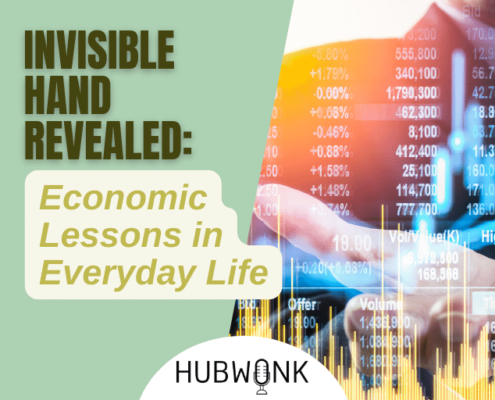
Invisible Hand Revealed: Economic Lessons in Everyday Life
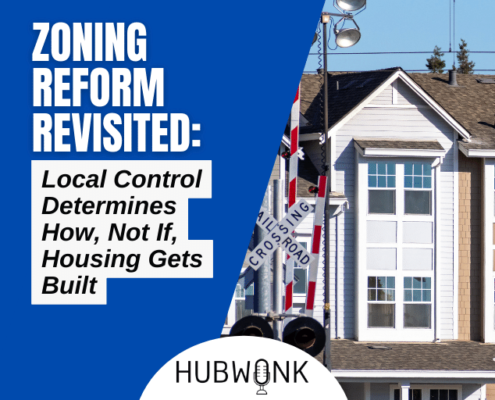
Zoning Reform Revisited: Local Control Determines How, Not If, Housing Gets Built
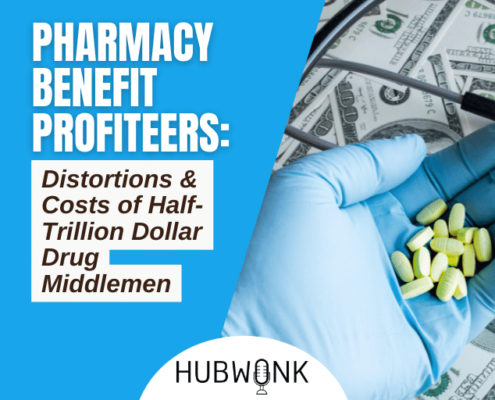
Pharmacy Benefit Profiteers: Distortions and Costs of Half-Trillion Dollar Drug Middlemen
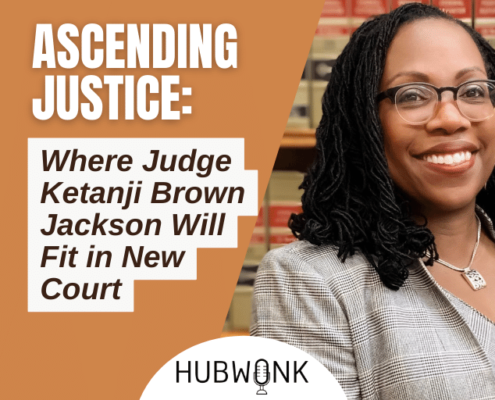
Ascending Justice: Where Judge Ketanji Brown Jackson Will Fit in New Court
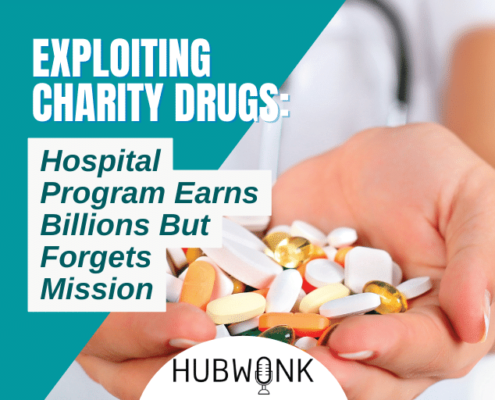
Exploiting Charity Drugs: Hospital Program Earns Billions But Forgets Mission
